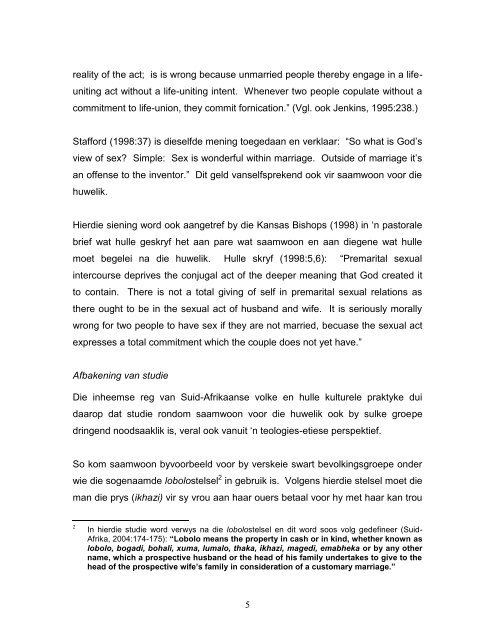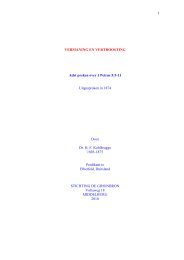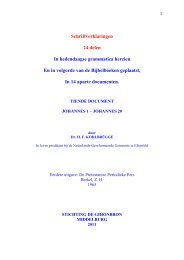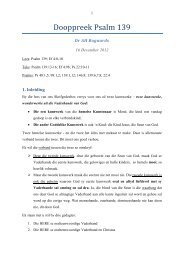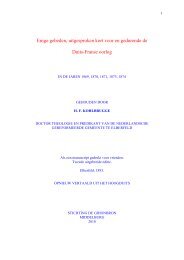Saamwoon voor die huwelik - AH Bogaards
Saamwoon voor die huwelik - AH Bogaards
Saamwoon voor die huwelik - AH Bogaards
Create successful ePaper yourself
Turn your PDF publications into a flip-book with our unique Google optimized e-Paper software.
eality of the act; is is wrong because unmarried people thereby engage in a lifeuniting<br />
act without a life-uniting intent. Whenever two people copulate without a<br />
commitment to life-union, they commit fornication.” (Vgl. ook Jenkins, 1995:238.)<br />
Stafford (1998:37) is <strong>die</strong>selfde mening toegedaan en verklaar: “So what is God‟s<br />
view of sex? Simple: Sex is wonderful within marriage. Outside of marriage it‟s<br />
an offense to the inventor.” Dit geld vanselfsprekend ook vir saamwoon <strong>voor</strong> <strong>die</strong><br />
<strong>huwelik</strong>.<br />
Hier<strong>die</strong> siening word ook aangetref by <strong>die</strong> Kansas Bishops (1998) in „n pastorale<br />
brief wat hulle geskryf het aan pare wat saamwoon en aan <strong>die</strong>gene wat hulle<br />
moet begelei na <strong>die</strong> <strong>huwelik</strong>. Hulle skryf (1998:5,6): “Premarital sexual<br />
intercourse deprives the conjugal act of the deeper meaning that God created it<br />
to contain. There is not a total giving of self in premarital sexual relations as<br />
there ought to be in the sexual act of husband and wife. It is seriously morally<br />
wrong for two people to have sex if they are not married, becuase the sexual act<br />
expresses a total commitment which the couple does not yet have.”<br />
Afbakening van stu<strong>die</strong><br />
Die inheemse reg van Suid-Afrikaanse volke en hulle kulturele praktyke dui<br />
daarop dat stu<strong>die</strong> rondom saamwoon <strong>voor</strong> <strong>die</strong> <strong>huwelik</strong> ook by sulke groepe<br />
dringend noodsaaklik is, veral ook vanuit „n teologies-etiese perspektief.<br />
So kom saamwoon by<strong>voor</strong>beeld <strong>voor</strong> by verskeie swart bevolkingsgroepe onder<br />
wie <strong>die</strong> sogenaamde lobolostelsel 2 in gebruik is. Volgens hier<strong>die</strong> stelsel moet <strong>die</strong><br />
man <strong>die</strong> prys (ikhazi) vir sy vrou aan haar ouers betaal <strong>voor</strong> hy met haar kan trou<br />
2<br />
In hier<strong>die</strong> stu<strong>die</strong> word verwys na <strong>die</strong> lobolostelsel en dit word soos volg gedefineer (Suid-<br />
Afrika, 2004:174-175): “Lobolo means the property in cash or in kind, whether known as<br />
lobolo, bogadi, bohali, xuma, lumalo, thaka, ikhazi, magedi, emabheka or by any other<br />
name, which a prospective husband or the head of his family undertakes to give to the<br />
head of the prospective wife‟s family in consideration of a customary marriage.”<br />
5


